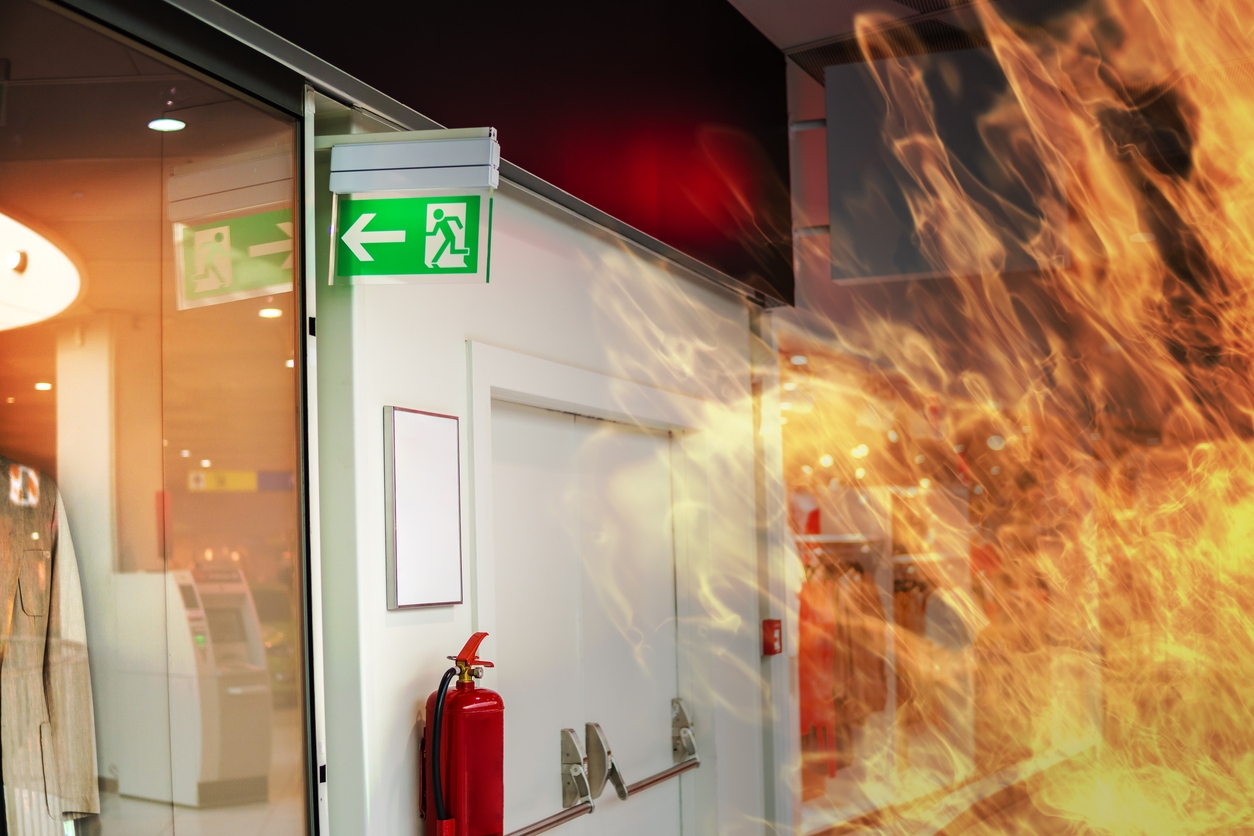Commercial fire restoration isn’t something you shop for every day, yet a single blaze can halt your Colorado operation for weeks. That’s why Property Restoration has built a dedicated fire and smoke restoration team that responds 24/7 from our Colorado Springs hub.
Come along and learn how you can tell the difference between true fire damage restoration contractors and general contractors, evaluate licensing and insurance, and pick a partner who can navigate complex business‑insurance claims. When we’re through, you’ll know exactly what questions to ask—and why choosing a specialized fire mitigation company is the fastest route back to business as usual.
Why Specialized Commercial Fire Restoration Matters in Colorado
Every hour your doors stay closed means lost revenue, missed purchase orders, and potential contract penalties. A contractor with proven commercial experience can triage structural, electrical, and inventory losses simultaneously, shaving days (and sometimes weeks) off the rebuild timeline.
Health & Safety Codes in Colorado
Colorado municipalities adopt versions of NFPA 1, NFPA 101, and the International Fire Code, all of which mandate that damaged fire‑rated assemblies, alarm circuits, and suppression systems be restored to their original listing. Restoration crews must also comply with OSHA respiratory‑protection rules when handling soot and corrosive ash.
Look for firms whose technicians hold IICRC Fire & Smoke Restoration (FSRT) and OSHA 10‑hour cards and who can coordinate third‑party testing to document clearance levels before re‑occupancy.
Business Continuity & Customer Trust
Rapid, transparent recovery isn’t just about fixing charred drywall; it’s about protecting your brand. Customers and employees need to know the facility is safe and operations will resume on schedule.
A dedicated commercial team can set up HEPA air scrubbers within hours, isolate smoke‑affected zones, and issue daily progress updates you can share with stakeholders, turning a potential PR crisis into a story of resilience.
Key Criteria When Choosing Your Fire Restoration Partner
24/7 Rapid Response & Local Reach
Wildfire season and winter heating mishaps don’t wait for business hours, so choose a contractor that guarantees on‑site arrival within two hours anywhere along the I‑25 corridor.
Local crews know county permitting nuances and already have relationships with Colorado Springs Utilities and Denver Fire Inspectors, accelerating approvals and utility reconnects.
Commercial Portfolio & Equipment
A strip‑mall café and a 200,000‑sq‑ft distribution center require very different toolkits. Verify that your prospective fire mitigation company owns large‑capacity desiccant dehumidifiers, trailer‑mounted generators, thermal foggers, and corrosion‑control agents rated for electronics.
Ask to see job photos and client references from similar commercial settings—warehouses, hotels, medical offices—to confirm breadth of experience.
Insurance Claim Support & Documentation
The best fire damage restoration contractors speak the same language as adjusters. They should format estimates correctly, capture pre‑mitigation photos, and produce moisture maps and air‑quality readings that justify every line item. FEMA’s business‑claim checklist shows how meticulous paperwork speeds reimbursement.
Great Questions to Ask Before You Sign a Contract
- What’s your guaranteed arrival time for commercial fire calls?
- Can you provide Colorado business references for projects of a similar size?
- Which IICRC, EPA, and OSHA certifications do your technicians hold?
- How do you document damages for insurers, and who meets the adjuster on site?
- Do you carry pollution liability and workers’ compensation specific to fire restoration?
Vetting Credentials
Unlike many states, Colorado doesn’t issue a single, statewide general‑contractor license—each city and county regulates its own program. For example, Denver, Fort Collins, and most Front Range jurisdictions require firms to hold a local Class A or B commercial license plus a supervisor certificate that must be renewed every one to three years.
Before signing any agreement, plug the company’s name into the local building‑department database and confirm the license is active, appropriately classified for commercial work, and free of disciplinary actions.
General Liability, Pollution, & Workers’ Comp Coverage
Fire restoration involves volatile soot, chemical residues, and structural hazards, so insurance can’t be an afterthought. Verify that your chosen firm carries:
- $2 million aggregate general liability to cover property and bodily injury claims.
- Pollution liability (often excluded from standard policies) for asbestos, lead, and smoke particulates released during demolition.
- Workers’ compensation registration with the Colorado Division of Workers’ Compensation protects your company from employee injury lawsuits.
Partnering for Claim Success
A solid fire mitigation company does more than gut and rebuild, it collaborates with you and helps you through the maze of commercial insurance paperwork so cash flow isn’t crippled while repairs progress.
Step one is thorough documentation: expect technicians to shoot 360‑degree photos of every affected room, label salvageable vs. non‑salvageable inventory, and record pre‑mitigation moisture and air‑quality readings. They’ll properly format the initial scope and create a “critical‑path” schedule to justify business‑interruption claims.
During the adjuster walkthrough, your contractor should provide annotated floor plans and a preliminary cost breakdown, focusing on code‑upgrade requirements under NFPA and local ordinances. After that, daily progress notes and change‑order logs keep everyone aligned, minimizing payment delays.
Partner With PRSCS for Specialized Commercial Fire Restoration
After your business is impacted by a fire, time is money and a growing compliance risk. General contractors excel at framing and finishes, but they rarely stock HEPA scrubbers, corrosion inhibitors, or thermal foggers, nor do they maintain IICRC fire‑specific training.
A dedicated fire mitigation company like Property Restoration arrives with specialized equipment, certified crews, and a project manager who already knows the local county permit workflows. That focus shaves critical days off reopening and keeps you code‑compliant from demolition through final inspection.
Property Restoration Solutions: Leading Commercial Restoration in Colorado
PRSCS has state-of-the-art equipment and techniques to bring your business back from disaster with rapid, code-compliant recovery. We’ll coordinate directly with adjusters, inspectors, and your own staff so that you can focus on your customers, not logistics. Call us at 719-650-5895 or contact us online to speak with a member of our local team to get started.


